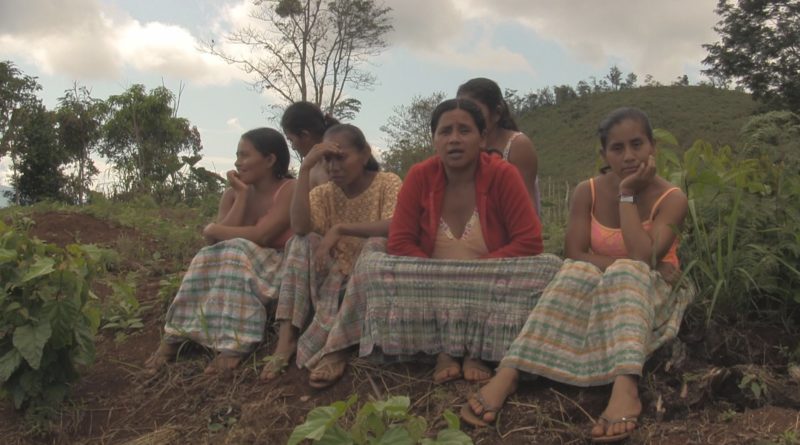Holding Canadian Corporations Accountable for Guatemalan Human Rights Violation: Skye Resources and HudBay
By Jion Yi, Research Associate at the Council on Hemispheric Affairs
To download a PDF version of this article, click here.
Figure 1: Timeline
Source: Amnesty International, Choc v. HudBay Minerals Inc. & Caal v. HudBay Minerals Inc. [1] [2]
In 2007, Margarita Caal Caal and 10 other indigenous Q’eqchi’ women in Guatemala were raped by security and military personnel hired by Integración Total, a Guatemalan private security company. The rape took place when Integración Total was ordered to evict the Q’eqchi’ population from the area for a mining project by Compañía Guatemala Niquel (CGN), a Guatemalan company subsidiary of a Canadian mineral extraction corporation. In 2011, the victims appealed to a Canadian Superior Court to hear a lawsuit on the rape against HudBay Minerals Inc., the Canadian corporation that controlled CGN. The case, titled Caal vs. HudBay Inc., bears a flagrant but overlooked paradox—at the time of the incident, CGN was a subsidiary company of another Canadian corporation, Skye Resources—not HudBay. However, because Skye was amalgamated into HudBay at the time of the lawsuit, the liabilities regarding the human rights violation in Guatemala were transferred to HudBay, even though HudBay before the amalgamation took no part in the incident. [3] Therefore, Skye should be held accountable for the human rights violation as a separate entity rather than as a part of HudBay because it allowed the incident to happen at the hands of its subsidiary company before its amalgamation. Nevertheless, this legal transaction does not conclude that HudBay should be wholly vindicated. HudBay is responsible in its choice to incorporate Skye despite the incident.
Skye allowed numerous legal violations of its subsidiary companies, CGN and Integración Total. According to the legal claim of the Ontario Superior Court of Justice, Skye Resources neglected three main legal violations committed by CGN and Integración Total: 1) absence of weapon licenses of the security personnel, 2) absence of personnel background check and appropriate code of conduct, and 3) retention of the subsidiaries through an informal oral agreement. Skye was well aware of these violations, yet chose to forgo any corrective action on them. [4] The fact that the company entered the agreement of amalgamation with HudBay—16 months after the incident—suggests that Skye, having realized the grave aftermath of its neglect, sought to transfer its liabilities to HudBay. Skye changed its name to HMI Nickel upon its amalgamation likely in an attempt to shirk any wrongdoings generated under the name Skye Resources. [5] Therefore, given the gravity of its corporate neglect and nature of its amalgamation to HudBay, Skye must not be allowed to consign its liabilities to HudBay, but be held accountable as a separate entity for the violation of Guatemalan human rights.
HudBay’s Misstep
Although HudBay is not directly responsible for the Guatemalan human rights violation in 2008, there was an agreement between the two companies allowing Skye to merge into HudBay. [6] It is possible that HudBay agreed to incorporate Skye for one of two reasons: either HudBay was not aware of Skye’s human rights abuses and the liabilities incurred by Skye, or it was aware of the incident, but still chose to complete the incorporation. In either case, HudBay’s responsibility lies in its imprudent business choice. If the first reason was true, HudBay ended up making the wrong choice because it neglected to conduct enough research to learn about the incident. If the second reason was true, the company underestimated the legal procedures and consequences of inappropriate corporate conduct abroad, demonstrating an unacceptable corporate mindset.
Oversight Required on the Canadian Corporate Conduct Abroad
The implementation of natural resources extraction in Latin America by Canadian companies call for strict regulation from both Canadian and Latin American governments. They must be especially careful in their employment and supervision of the local subsidiary companies, because this impacts the inhabitants’ human rights in the region. With any luck, Caal vs. HudBay Inc. will mark the genesis of a new era in the Guatemalan corporate structure where human rights’ matters are to be valued above all.
By Jion Yi, Research Associate at the Council on Hemispheric Affairs
Original Research on Latin America by COHA. Please accept this article as a free contribution from COHA, but if re-posting, please afford authorial and institutional attribution. Exclusive rights can be negotiated. For additional news and analysis on Latin America, please go to: LatinNews.com and Rights Action.
Featured Photo: Taken from Youtube.
[1] “Guatemala: Mining in Guatemala: Human Rights at Risk,” Amnesty International, accessed June 14, 2016, http://www.amnesty.ca/sites/amnesty/files/mining-in-guatemala-rights-at-risk-eng.pdf
[2] “About.” Choc v. HudBay Minerals Inc. & Caal v. HudBay Minerals Inc., accessed June 10, 2016, http://www.chocversushudbay.com/wp-content/uploads/2010/11/Amended-Statement-of-Claim-Caal-v.-HudBay-FILED.pdf
[3]“Guatemalan Women’s Claims Put Focus on Canadian Firms’ Conduct Abroad.” New York Times, accessed June 10, 2016, http://www.nytimes.com/2016/04/03/world/americas/guatemalan-womens-claims-put-focus-on-canadian-firms-conduct-abroad.html?_r=0
[4] Ibid.
[5] Ibid.
[6] Ibid.



